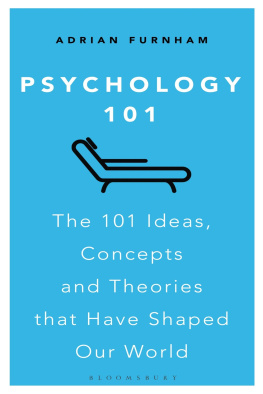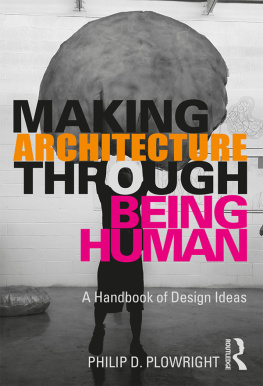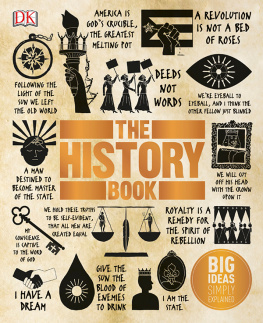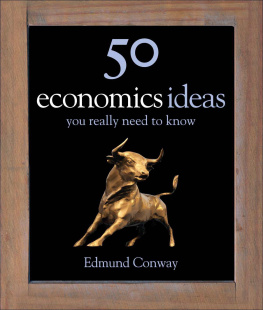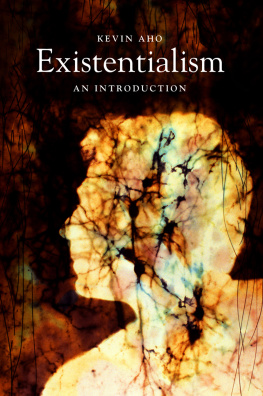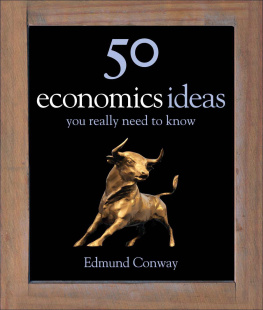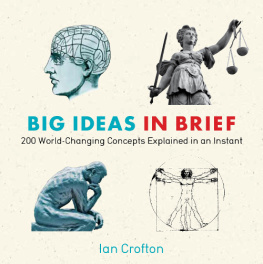For Lauren and Luke Dream big!
First published in Great Britain in 2017
by Michael OMara Books Limited
9 Lion Yard
Tremadoc Road
London SW4 7NQ
Copyright Daniel Smith and Michael OMara Books Limited 2017
Every reasonable effort has been made to acknowledge all copyright holders. Any errors or omissions that may have occurred are inadvertent, and anyone with any copyright queries is invited to write to the publisher, so that a full acknowledgement may be included in subsequent editions of this work.
All rights reserved. You may not copy, store, distribute, transmit, reproduce or otherwise make available this publication (or any part of it) in any form, or by any means (electronic, digital, optical, mechanical, photocopying, recording or otherwise), without the prior written permission of the publisher. Any person who does any unauthorized act in relation to this publication may be liable to criminal prosecution and civil claims for damages.
A CIP catalogue record for this book is available from the British Library.
ISBN: 978-1-78243-829-8 in hardback print format
ISBN: 978-1-78243-883-0 in trade paperback print format
ISBN: 978-1-78243-830-4 in ebook format
www.mombooks.com
Contents
A pile of rocks ceases to be a rock pile when somebody contemplates it with the idea of a cathedral in mind.
Antoine de Saint-Exupry
It is sometimes said that love or perhaps money makes the world go round, but ideas have a much better claim to keeping us all spinning on our axis. Ideas are the great currency of life, driving progress and nurturing understanding of ourselves and of the world around us and, arguably, are the defining characteristic that elevates our species above all others. We may not be the only creature to entertain ideas one need only glimpse a squirrel striving to liberate a feast of nuts from a bird feeder to see that but we have the biggest and best ideas, not to mention the wherewithal to bring them to fruition. As the great architect Frank Lloyd Wright put it An idea is salvation by imagination.
This book explores 150 of the most significant ideas of all time, those that have moulded societies and epochs, many of them as relevant today as they ever were. Over eight parts covering different aspects of science, art, politics, economics, philosophy and religion, we will immerse ourselves in the thoughts of great minds spanning antiquity to the present day. Some are ideas that evolved slowly, sometimes over a period of millennia for example, the idea of democracy while others represent dramatic paradigm shifts think Einsteins General Theory of Relativity. It is also notable how many great ideas emerged from or fed off others. Human thought clearly thrives by cross-fertilization. In the words of the American writer Ursula K. Le Guin: It is of the nature of idea to be communicated: written, spoken, done. The idea is like grass. It craves light, likes crowds, thrives on crossbreeding, grows better for being stepped on.
In all chaos there is a cosmos, in all disorder a secret order.
Carl Jung
The cosmos describes the universe as seen as an ordered whole, as opposed to an amalgam of bewildering chaos. Since the dawn of time our species has sought to make sense of our world and, crucially, how we fit into it. We have utilized different mechanisms to do so, perhaps most notably religious faith and scientific investigation, both of which are considered in the chapter that follows. Yet religion and science have often seemed at odds with each other in this quest. Richard Dawkins, for example, calls faith the great cop-out, the great excuse to evade the need to think and evaluate evidence. Others, though, have believed there is space for both. Einstein took a nuanced approach. While rejecting the idea of a personal god, he once wrote: Try and penetrate with our limited means the secrets of nature and you will find that, behind all the discernible concatenations, there remains something subtle, intangible and inexplicable. Veneration for this force beyond anything that we can comprehend is my religion. To that extent I am, in point of fact, religious. That greatest of science communicators, Carl Sagan, meanwhile, summarized our deep fascination with matters of the universe in Cosmos: The Cosmos is all that is or ever was or ever will be. Our feeblest contemplations of the Cosmos stir us there is a tingling in the spine, a catch in the voice, a faint sensation of a distant memory, as if we were falling from a great height. We know we are approaching the greatest of mysteries.
The universe comprises all that may be sensed, measured and detected although, of course, in actuality we know that the vast majority of it remains unsensed and uncharted. It includes all living things, all physical and celestial objects, atmospheres, galaxies, vacuums and voids, as well as concepts such as space and time.
The idea of a physical universe governed by basic scientific laws (as opposed to the notion of a personal universe the nature of which is subject to individual consciousness) was in circulation among, for example, ancient Chinese, Greek and Indian thinkers. Although the descriptions of its origins and nature were largely speculative, human thought was nonetheless unleashed from the shackles of introspection and localization and directed outwards into the unknown of the cosmos. Man, in other words, could begin to perceive of himself within the Big Picture.
There have been long-running fundamental debates as to whether the universe is essentially unchanging or in constant flux, whether it is finite, whether time is linear, or not, and if there is other life like us out there. Most of these big questions remain up for grabs.
Yet even as the mysteries of the universe abound, we have been able to calculate (although we still lack definitive empirical evidence) its rough age (13.8 billion years) and size (at least 93 billion light years across). We have some understanding of how our own galaxy is organized, how time and space may be bent, how black holes are created, how the Big Bang may have birthed the universe all immense achievements of intellectual imagination. We have much more to find out, of course, but humanity may never have a bigger idea than that which acknowledged, thousands of years ago, that there is more to the universe than what we can see and feel ourselves.
There are, perhaps, two questions above all others that have preoccupied humanity from the moment we could cognitively formulate them: where did we come from and why are we here? Despite our rapid advances in scientific understanding, the answers remain as elusive as ever for all that the likes of Copernicus, Newton, Darwin, Einstein and their ilk have progressed knowledge. For instance, even if you accept the Big Bang theory of cosmological creation (see ), who can say with any certainty what, if anything, existed prior to the Big Bang, much less whether we now inhabit the world as a result of pure cosmological chance or with some higher purpose attached to our existence?
All of this doubt leaves room for myriad possible explanations. Traditional narratives that have attempted to explain the origins of the world and our species come under the umbrella term of creation myths. Most are the products of distinct cultural and historical perspectives, striving to express profound truths and explain the meaning of our existence. In terms of content and structure, they tend to fall into two distinct categories: those that claim to be literal, historical accounts of creation and those that are metaphorical stories full of symbolic meaning.



